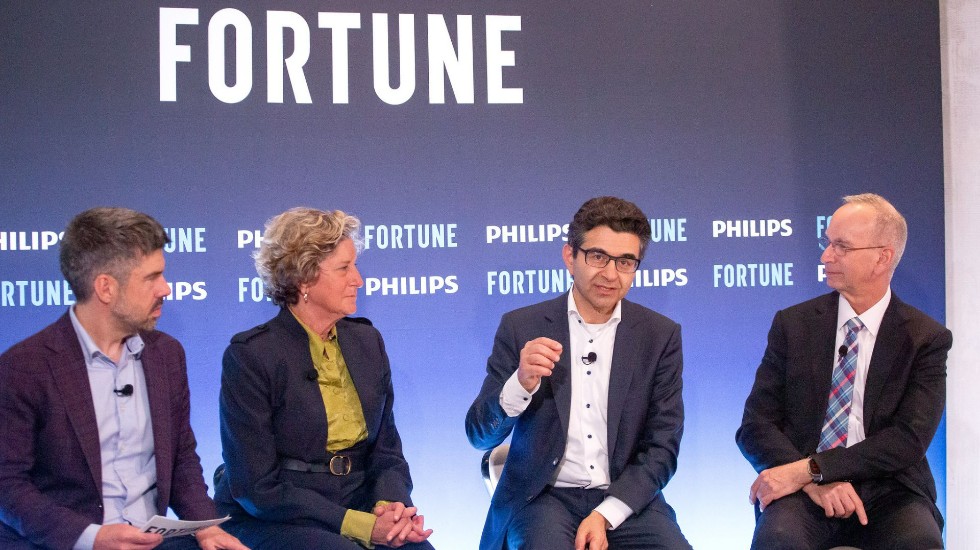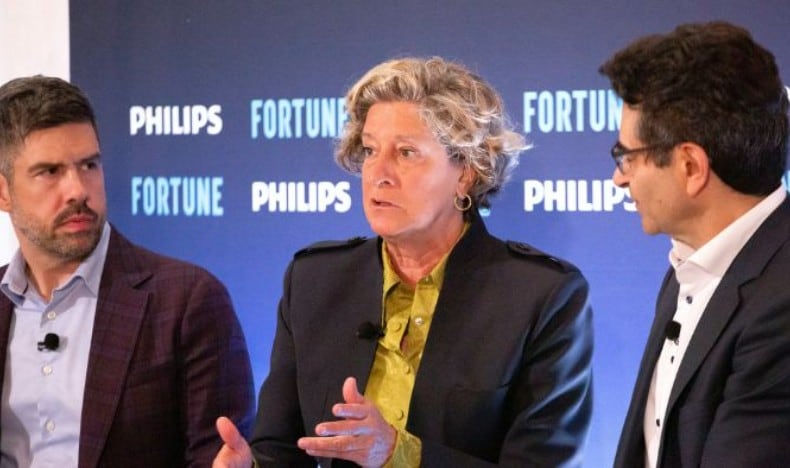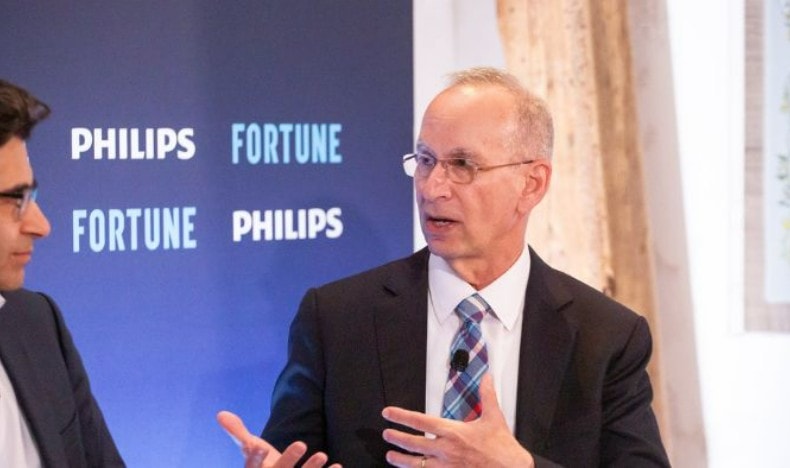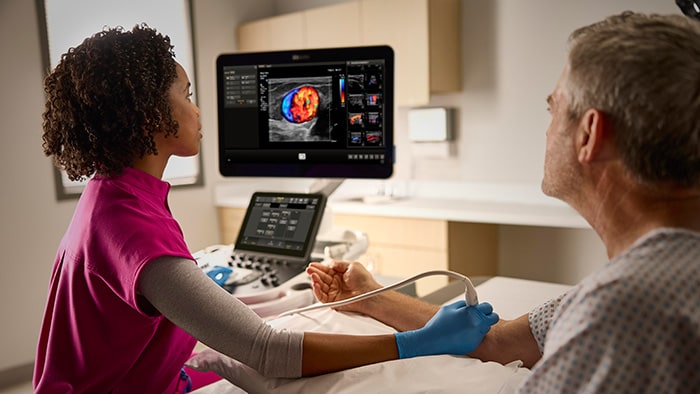Building Trust in Healthcare AI: Leaders Weigh in
Highlights from Fortune & Philips’ 2025 Future Health Index Panel
Jun 30, 2025 | 3 minute read
At a recent Fortune-hosted dinner in New York, healthcare leaders gathered to discuss insights from Philips' 2025 Future Health Index (FHI) report and explore how artificial intelligence (AI) is transforming healthcare delivery. Fortune’s Jason Del Rey moderated the timely conversation with frontline leaders Dr. Shez Partovi (Philips), Dr. Jill Kalman (Northwell Health), and Dr. David Reich (Mount Sinai Hospital). The message was clear: AI earns its place when it gives time back to clinicians and builds confidence with patients. Here are five takeaways from the discussion.

1. Trust starts at the patient bedside
The FHI reveals a striking optimism gap: 63% of U.S. clinicians believe AI can improve patient outcomes, while only 48% of patients agree. Partovi emphasized the importance of clinician involvement: “Patients said that their trust goes up if the AI is actually combined with input from physicians and nurses.” The data backs that up—79% of U.S. patients say a physician’s explanation increases their comfort with AI.
Trust isn’t just about what AI can do—it’s about how it’s implemented. When clinicians guide the conversation, patients are reassured and feel supported.
2. Time, not tech, is clinicians’ scarcest resource
According to FHI, more than 75% of U.S. clinicians say they lose time each shift to incomplete or inaccessible data; one-third lose over 45 minutes. Kalman spotlighted the need to eliminate unnecessary tasks through automation, describing prior authorization processes as prime examples:
“I love cases like this because it takes incredibly mundane tasks that no one has to do...and there’s no risk to the patient.”

AI technology should ease time pressure—not add complexity. When designed effectively, clinicians see the potential for AI to reduce burnout, and enhance the overall patient experience.
3. Enhancing clinical expertise and patient care
Reich highlighted the power of AI tools that handle routine tasks, allowing healthcare providers to focus on more critical interactions. Mount Sinai’s AI-powered alert system for aortic dissection exemplifies this approach—rapidly identifying life-threatening conditions so surgical teams can act swiftly.
Mount Sinai also successfully implemented NutriScan AI, significantly improving the accuracy of malnutrition diagnoses and enhancing dietitians’ job satisfaction. When AI handles routine tasks, clinicians can spend more time on meaningful patient care.
4. ROI isn’t optional
Implementing AI requires a clear demonstration of value, a point Reich made explicitly:“It’s very challenging at first to implement something unless I can both demonstrate strong ROI, which isn’t always financial but mostly, and scalability.”

Partovi illustrated this principle with Philips’ Compact Ultrasound 5500CV, which uses AI to halve cardiac scan times—enhancing patient throughput, reducing clinician workload, and improving operational efficiency.
To succeed in real-world care, AI must deliver clinical, workflow, and financial impact.
5. Partnership powers progress
The importance of collaboration between health systems and tech partners was a key panel theme. Kalman described the shift from traditional vendor models to genuine partnership models in healthcare technology: “Typically in the past...vendors came, ‘this is our product, and this is what we’re gonna do.’ It’s much more partnerships now. What do you need? How do we develop it together? Let’s develop it together, pilot together, scale it together.”
Partovi reinforced this point, noting that the richest data sits within provider organizations, making open ecosystems and collaboration essential to successful AI deployments.
The FHI report confirms that progress depends on partnership. When solutions are shaped by the people who use them, they’re more likely to succeed.
The bottom line
AI’s promise in healthcare lies in giving clinicians back what they need most: time. When designed with providers and introduced transparently, it becomes more than a tool—it becomes a way to deliver better care for more people.
Watch the full panel conversation to hear directly from the leaders shaping the future of care.





